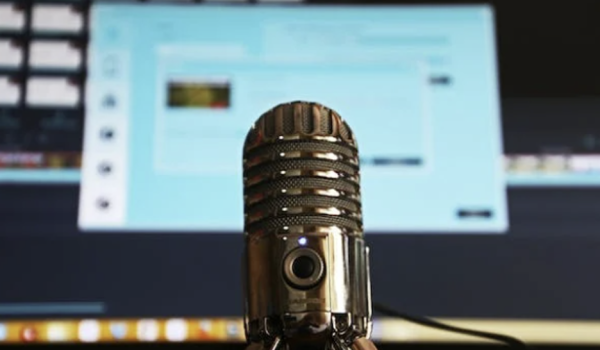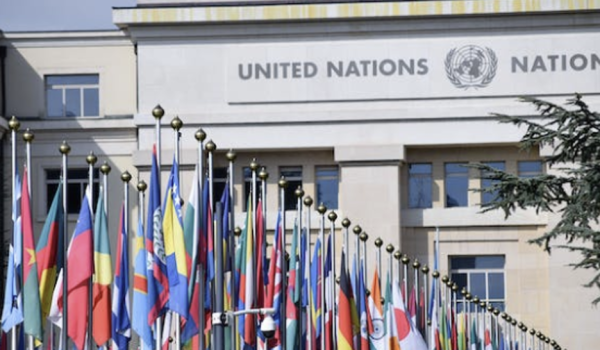This Saturday, is70 years since the UN was formally inaugurated. The foundational conference, held in San Francisco from April to June 1945, hosted representatives of 50 nations, 850 delegates, a total of 3500 staff, and more than 2500 press representatives, making the San Francisco Conference perhaps the greatest international gathering in the history of humanity. As a result, the United Nations Charter was signed and, upon its ratification by the majority of the signatories, the United Nations came into existence on 24 October 1945.
Since then, the United Nations has walked a long path as the natural successor to the League of Nations in terms of global peacekeeping. We may criticize the UN’s efforts and/or methods, but the fact is that, since World War II, not a single armed conflict has become global. Therefore, we may conclude that the UN has succeeded in its primary mission.
What exactly are the Sustainable Development Goals, and where do they come from?
It has been a long time since the United Nations evolved and shifted its focus from being a guard to every Tom, Dick and Harry to an organization dedicated to improving every major aspect of the lives of these three fellows. Now, forget what you thought as a child, because these things will not happen by waving a magic wand or through the intervention of a superhero. This world will not be saved by Clark Kent after he removes his suit, because it is all of us who share in the responsibility. The United Nations has provided us a way of doing it, and that is through the Sustainable Development Goals (commonly abbreviated as the SDGs) promulgated this year.
The Sustainable Development Goals (or Global Goals) refer to an agreement between all the members of the UN regarding international development in the fifteen years that lie immediatley ahead (hence 2016-2030). The SDGs are the successor to the Millenium Development Goals (MDGs), the agreement reached at the Millenium Summit of the United Nations in 2000. The MDGs themselves were designed as a fifteen year plan (2000-2015), focused on achieving the following eight goals:
- Eradicate extreme poverty and hunger
- Achieve universal primary education
- Promote gender equality
- Reduce child mortality
- Improve maternal health
- Combat HIV/AIDS, malaria, and other diseases
- Ensure environmental sustainability
- Develop a global partnership for development

As the year 2015 approached, it was necessary to evaluate the outcomes of the MDGs and to discuss a new agenda for the next fifteen years. In 2012, the Rio+20 summit was held. The outcome of the summit was an official document entitled The Future We Want, calling for sustainable development goals to be adopted in the new, post-2015 agenda.
In May of 2013, it was announced that the Post 2015 Development Agenda would be a universal agenda which „needs to be driven by five big, transformative shifts“:
- Leave No One Behind
- Put Sustainable Development at the Core
- Transform Economies for Jobs and Inclusive Growth
- Build Peace and Effective, Open and Accountable Institutions for All
- Forge a New Global Partnership

Transforming our world
The Post-2015 Development Agenda was adopted by all 193 members at the UN Sustainable Development Summit in September 2015, under the title Transforming our world: the 2030 Agenda for Sustainable Development. These are its goals:
- End poverty in all its forms everywhere
- End hunger, achieve food security and improved nutrition, and promote sustainable agriculture
- Ensure healthy lives and promote well-being for all at all ages
- Ensure inclusive and equitable quality education and promote lifelong learning opportunities for all
- Achieve gender equality and empower all women and girls
- Ensure availability and the sustainable management of water and sanitation for all
- Ensure access to affordable, reliable, sustainable and modern energy for all
- Promote sustained, inclusive and sustainable economic growth, full and productive employment and decent work for all
- Build resilient infrastructure, promote inclusive and sustainable industrialization, and foster innovation
- Reduce inequality within and among countries
- Make cities and human settlements inclusive, safe, resilient and sustainable
- Ensure sustainable consumption and production patterns
- Take urgent action to combat climate change and its impacts
- Conserve and sustainably use the oceans, seas and marine resources for sustainable development
- Protect, restore and promote the sustainable use of terrestrial ecosystems, sustainably manage forests, combat desertification, and halt and reverse land degradation and halt biodiversity loss
- Promote peaceful and inclusive societies for sustainable development, provide access to justice for all and build effective, accountable and inclusive institutions at all levels
- Strengthen the means of implementation and revitalize the global partnership for sustainable development

Where do we stand now?
Based on statistics provided by United Nations and the World Bank, the evaluation of the MDGs showed that, in the past fifteen years, a massive change occurred worldwide. Numbers don’t lie. Seven of the eight MDGs went in the right direction. Mainly, it is estimated that around one billion people emerged from extreme poverty. More people became educated and achieved access to health care and drinking water. Doesn’t it sound glorious? The only parameter where we failed was to ensure environmental sustainability. Particularly, numbers have shown that we emit 10 billion tons of carbon dioxide (or half a ton per capita) more than we did fifteen years ago.
Criticism
There are, of course, flaws to both these agendas. The best feature of the flaws is that the UN did not try to justify or hide them, but rather stated the shortcomings of the Millenium Development Goals in the opening statement of Transforming our world: the 2030 Agenda for Sustainable Development.
The main issue regarding the UN 2015 agenda was the uneven realization of the stated goals. For instance, the framework provided by the MDGs resulted in turning China, India, and Brazil into new global forces, while, at the same time, Benin accomplished virtually none of the stated goals.
Also, objections have been made about the financial sustainability of the MDGs. Some have noticed that the MDGs were mostly achieved through transfers of money. The core of this problem may be illuminated through the proverb „give a man a fish and you feed him for a day“, but „teach a man to fish and you feed him for a lifetime.“
Conclusion
To sum up, the 2030 Agenda has enumerated drastically expanded goals compared to its somewhat faulty predecessor. As we are waiting for institutional implementation to gain momentum, all we can do is to act upon the goals on as individuals. It will take time until we are able to answer whether this new agenda will offer a solution to the aforementioned deficiencies.
All the statistics taken from the official UN page
Support us!
All your donations will be used to pay the magazine’s journalists and to support the ongoing costs of maintaining the site.
Share this post
Interested in co-operating with us?
We are open to co-operation from writers and businesses alike. You can reach us on our email at [email protected]/[email protected] and we will get back to you as quick as we can.









